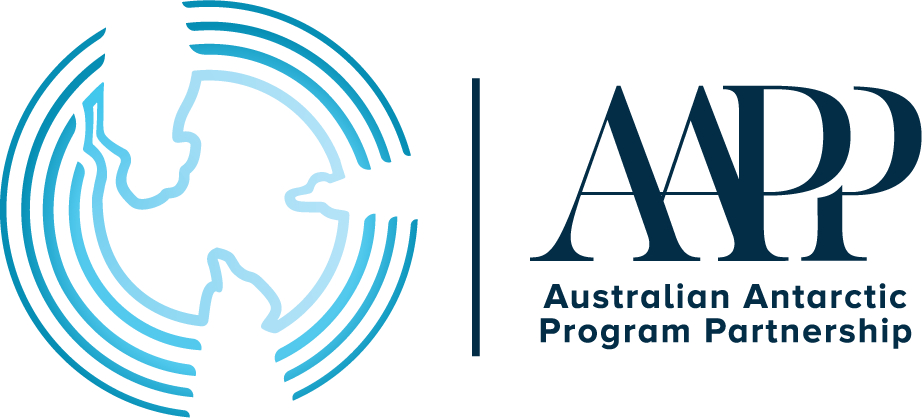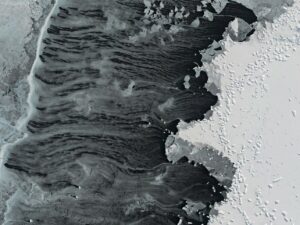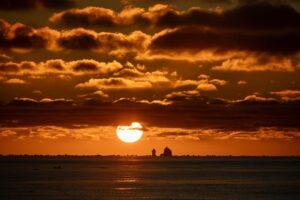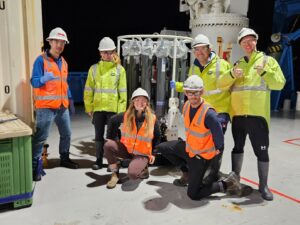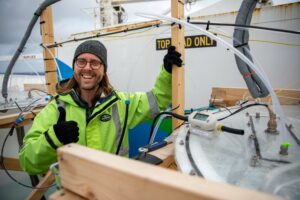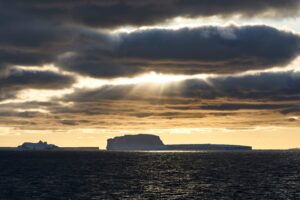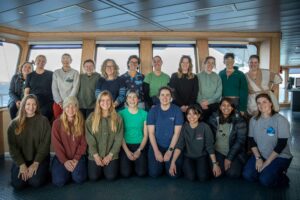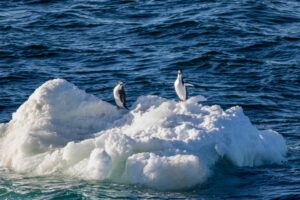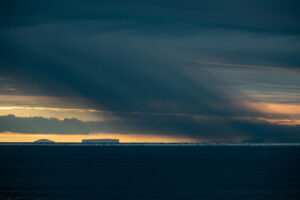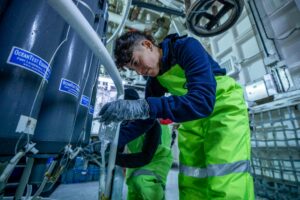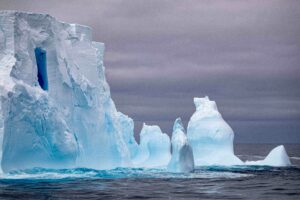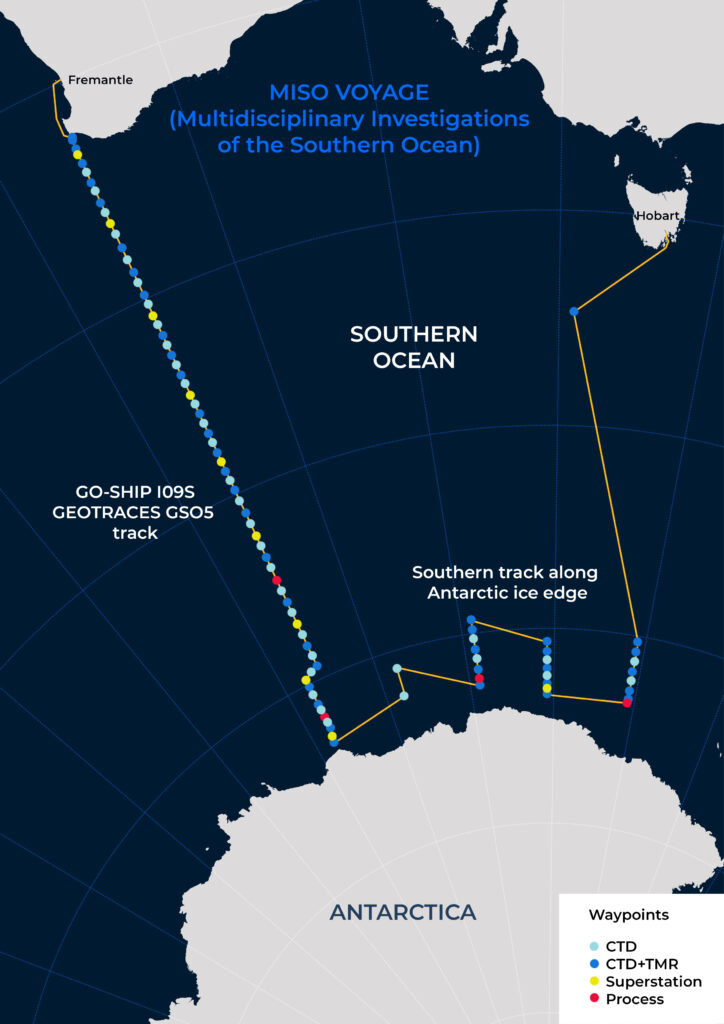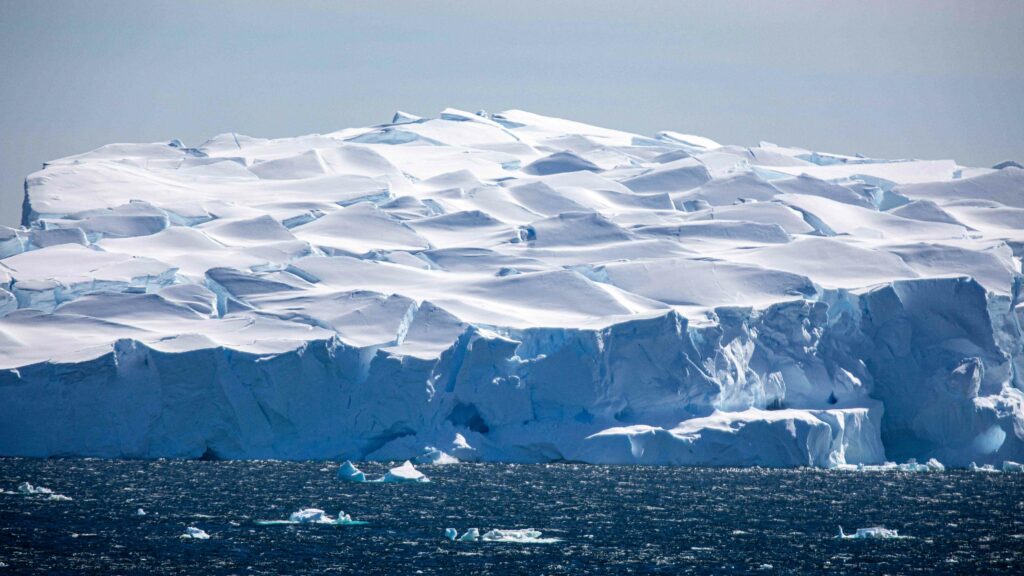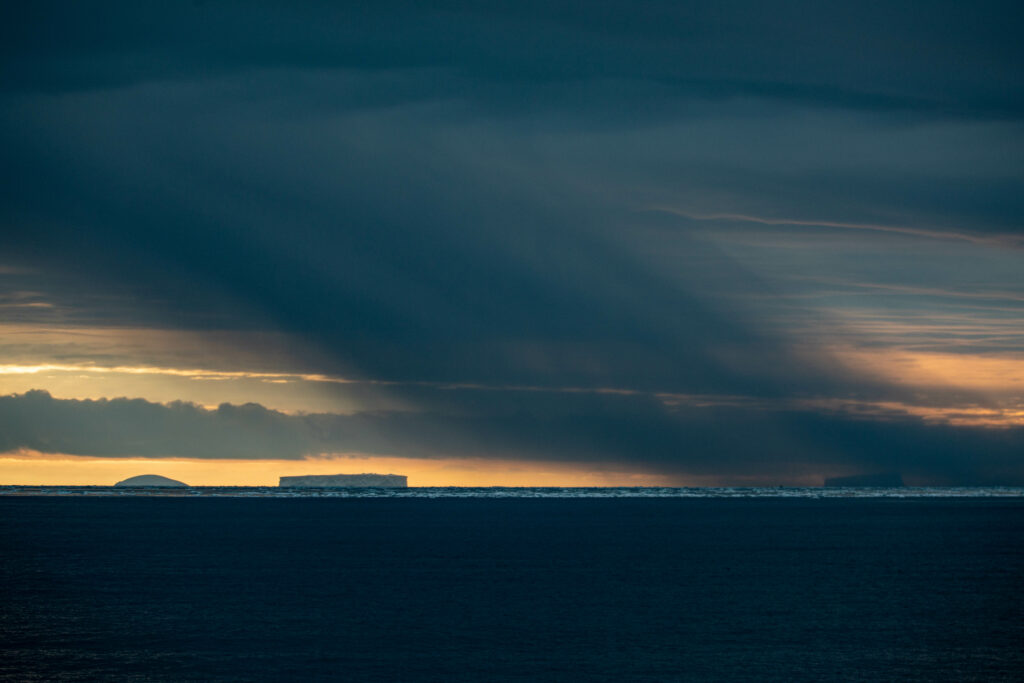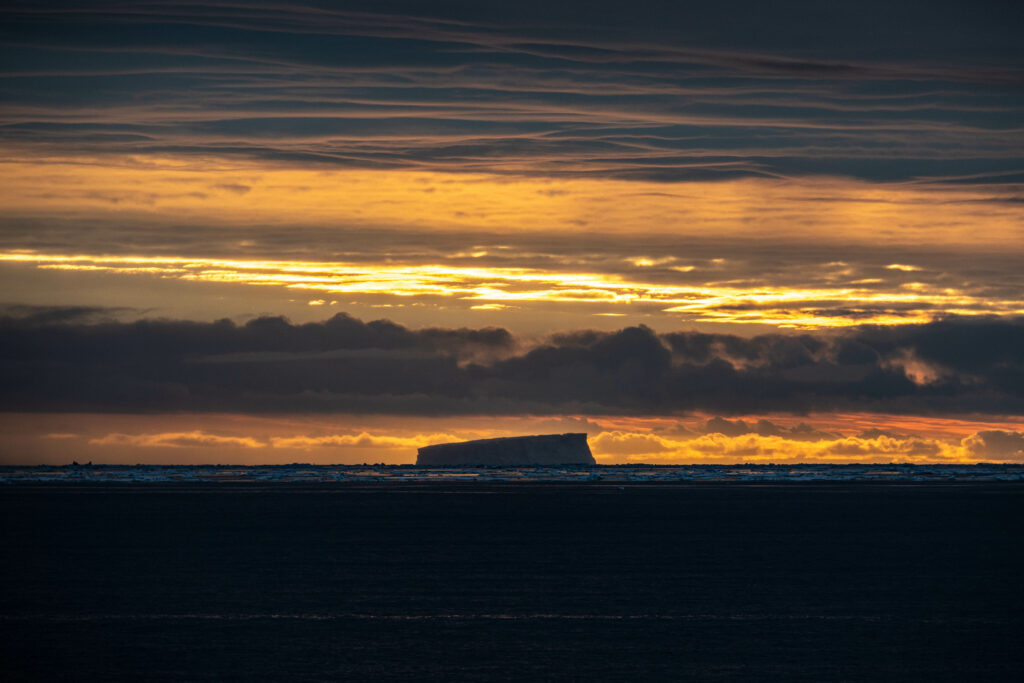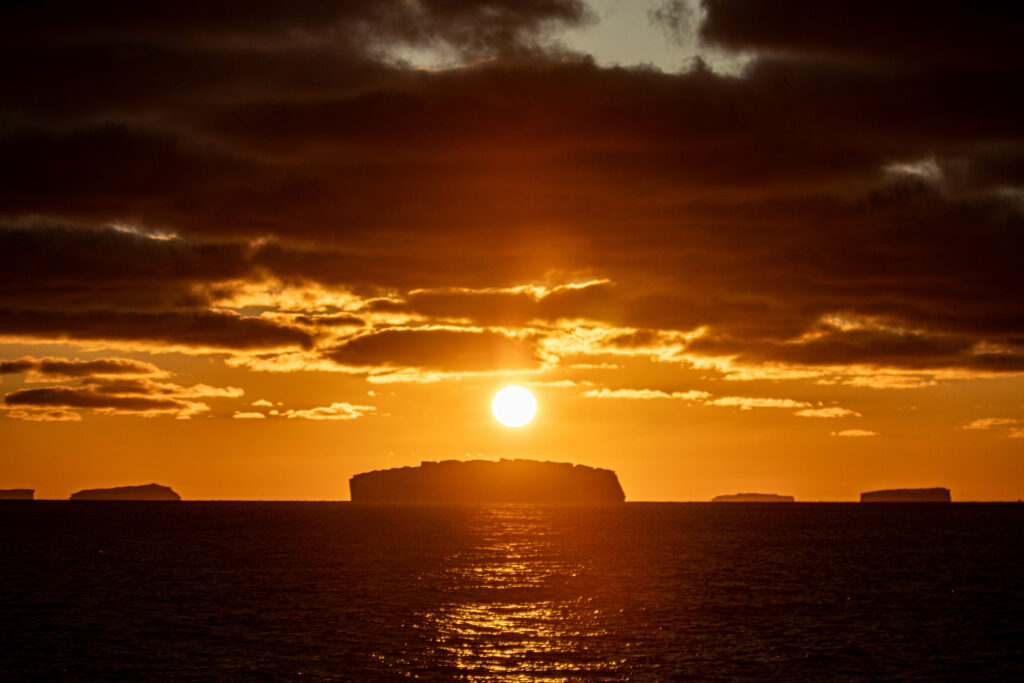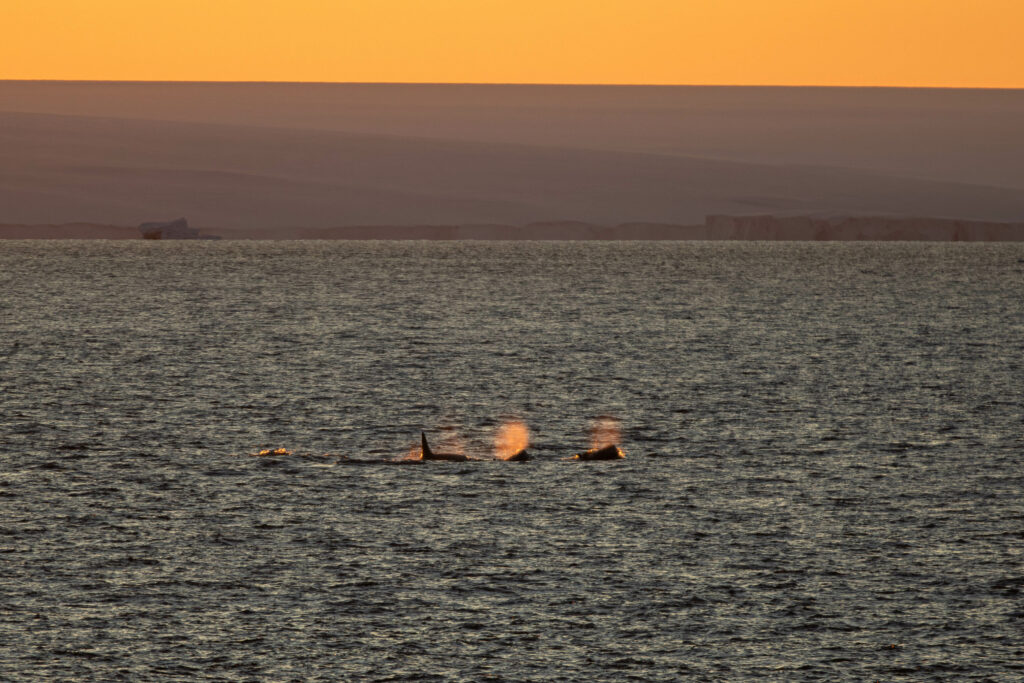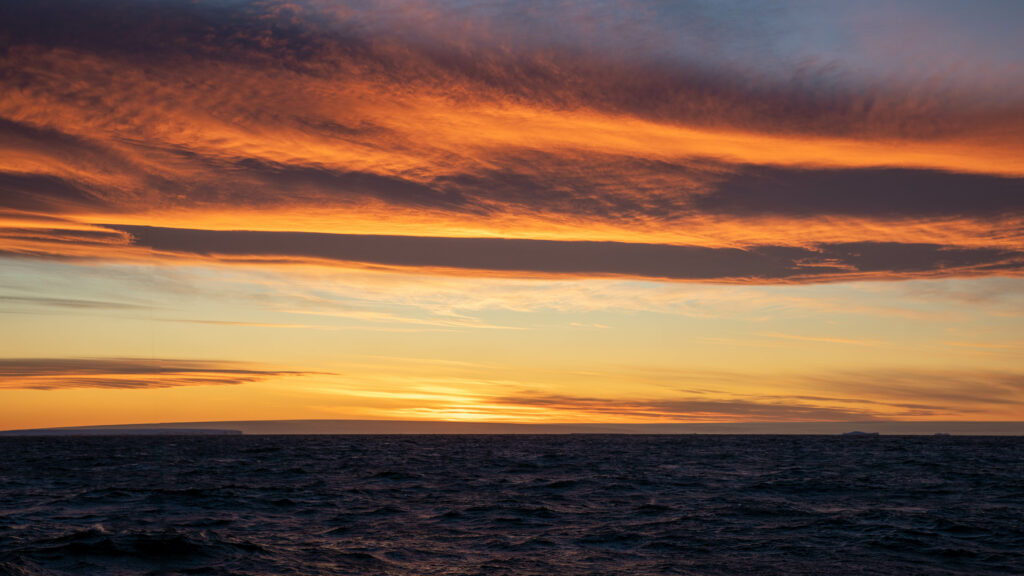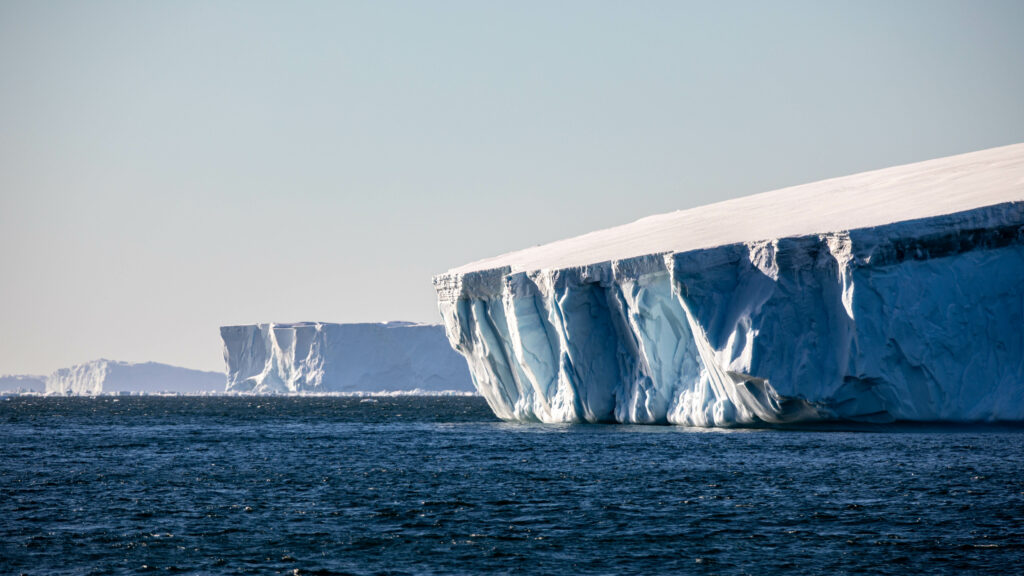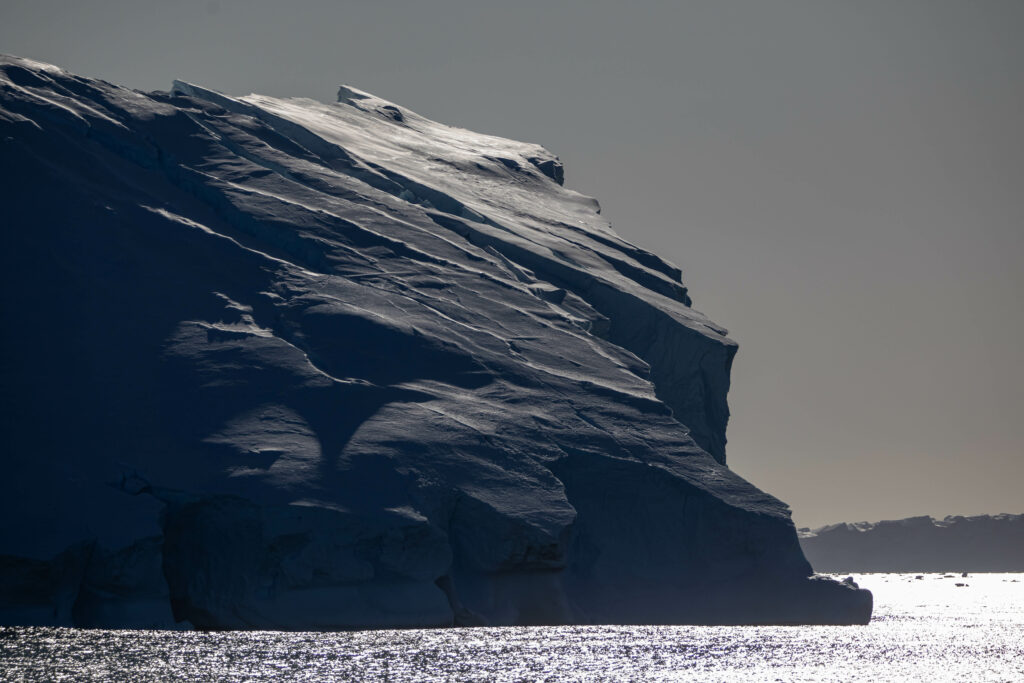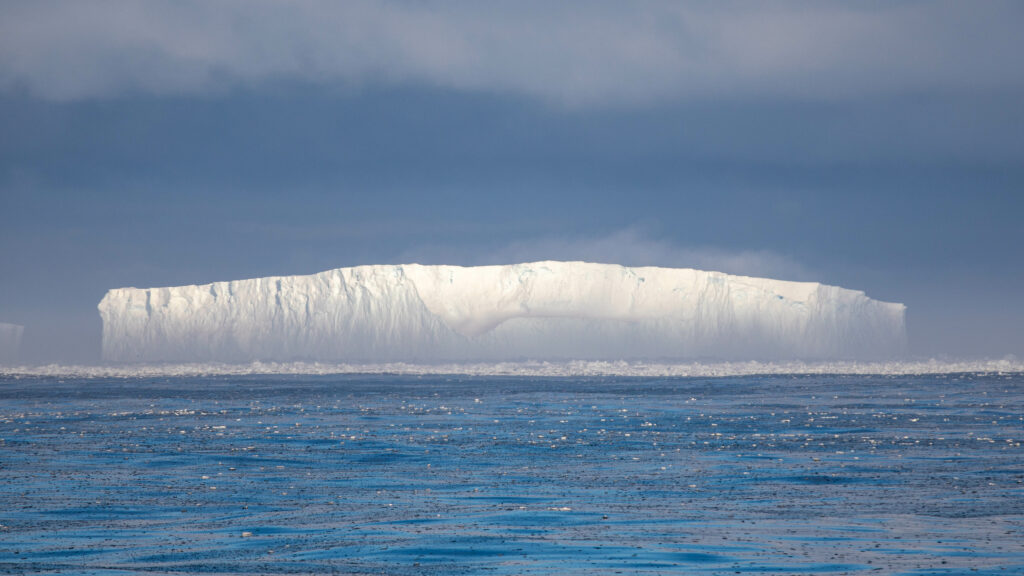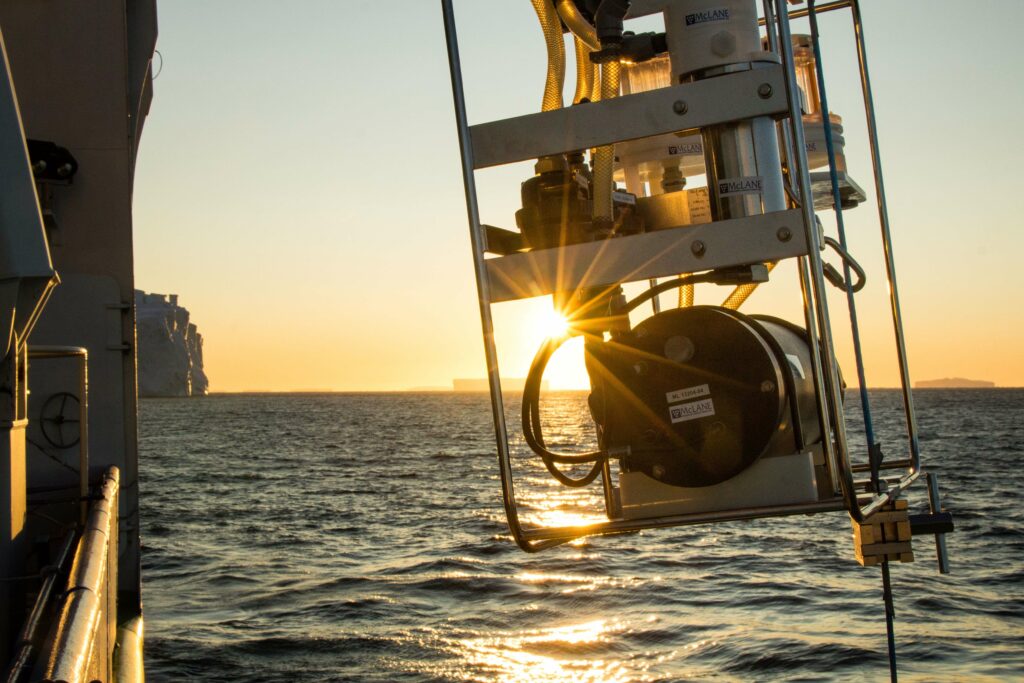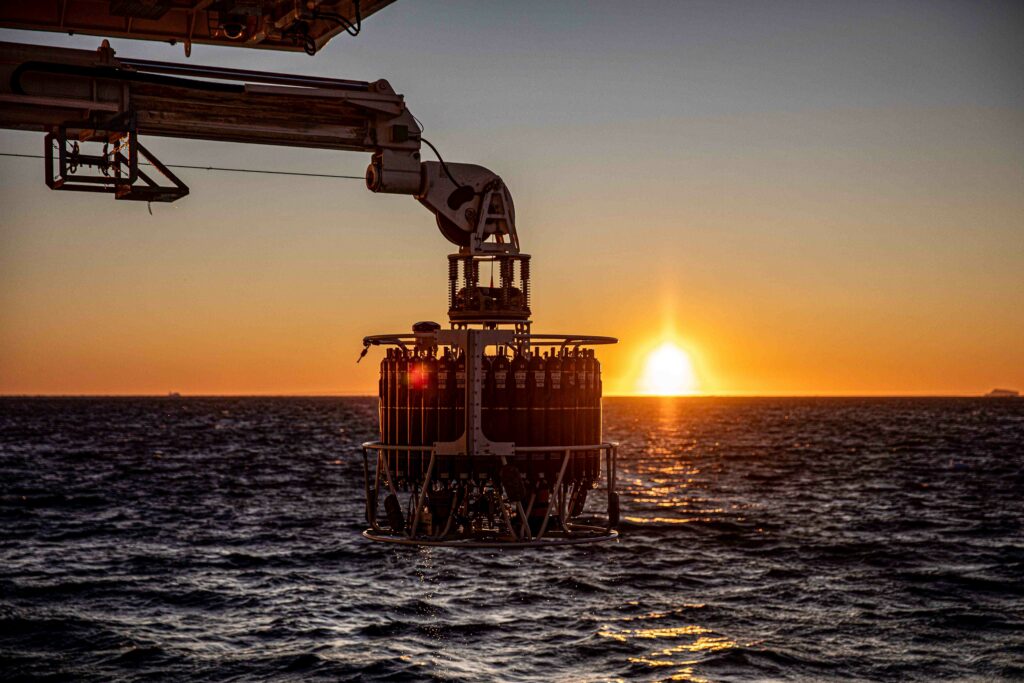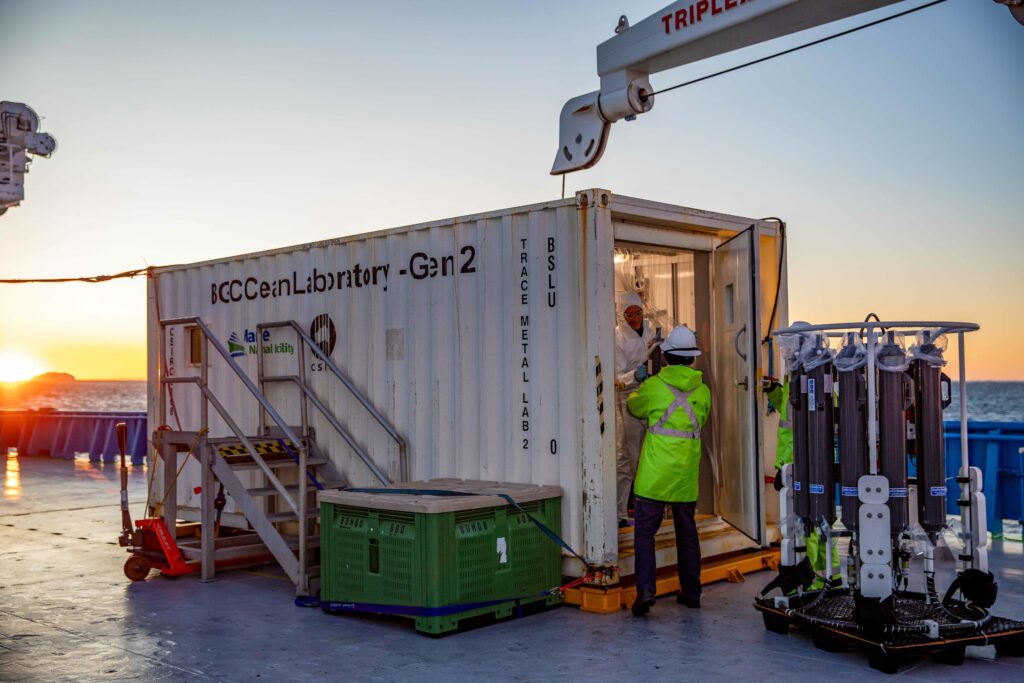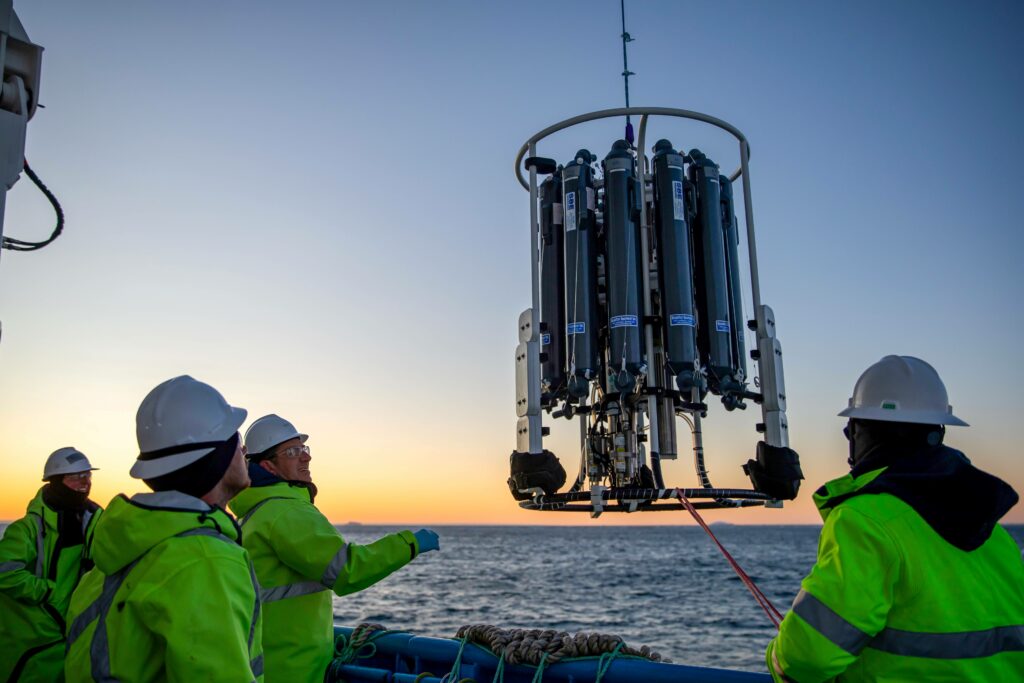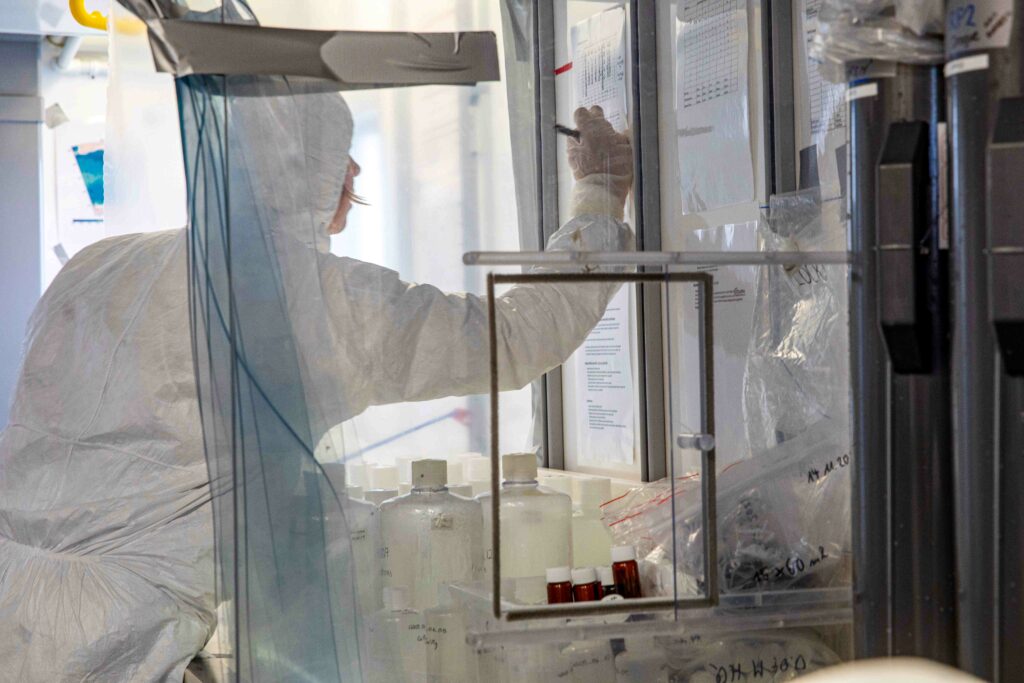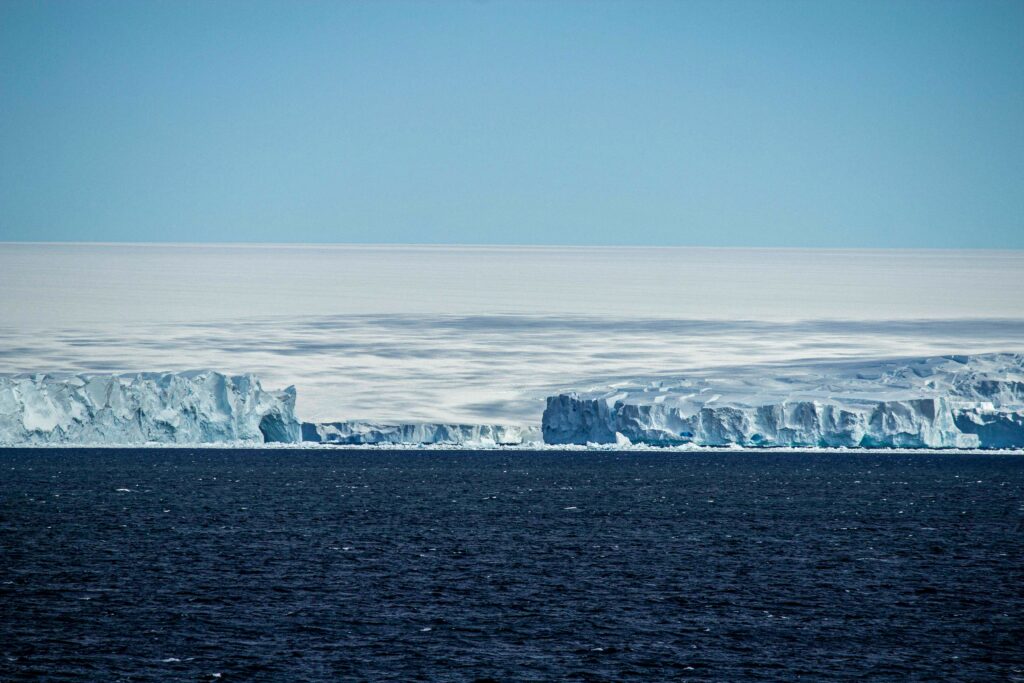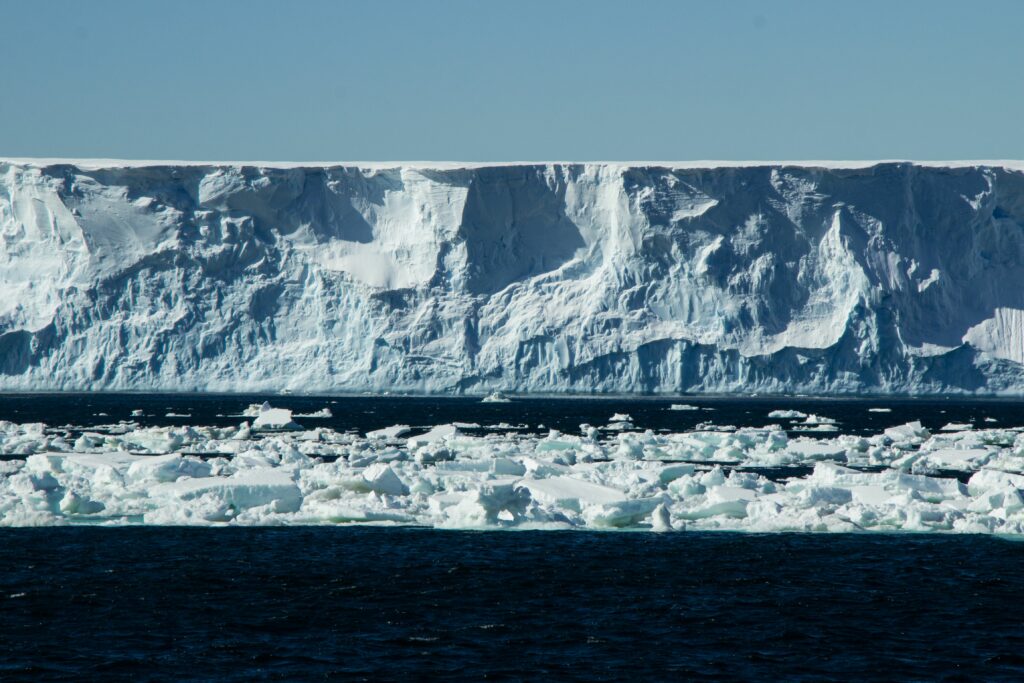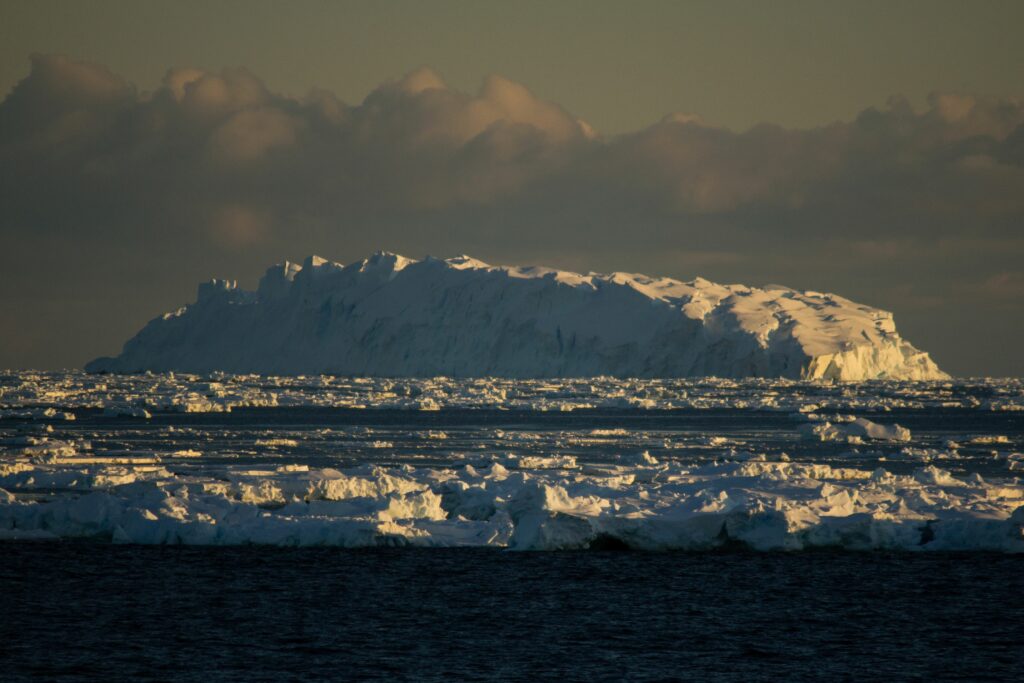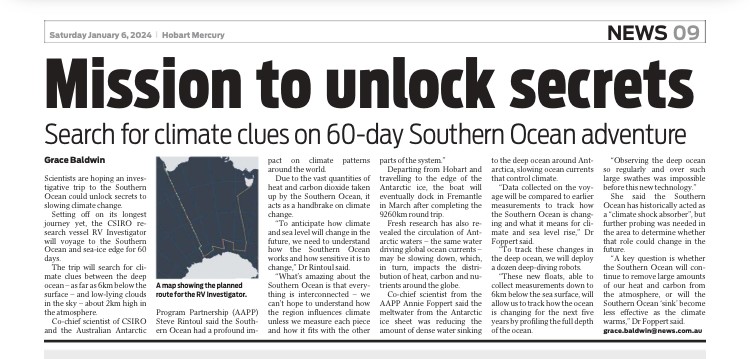Welcome aboard MISO!
The MISO voyage on CSIRO research vessel RV Investigator sailed from Hobart on 5 January 2024.
MISO stands for:
Multidisciplinary Investigations of the Southern Ocean.
The aim of the 60-day voyage is to improve our ability to anticipate the impacts of future climate change.
39 scientists in five teams (CTD, Carbon, Atmosphere, Biology, GEOTRACES) will explore how links between physics, biogeochemistry, plankton, aerosols, precipitation and clouds influence the Earth’s climate, from the deep ocean to the lower atmosphere.
The Southern Ocean takes up vast amounts of heat and carbon dioxide and acts as a climate 'shock absorber'.
Changes in the Southern Ocean would have profound implications, influencing the rate of climate change, the productivity of the Antarctic ecosystem, and the future of the Antarctic Ice Sheet.
Data collected on the MISO voyage will be compared to earlier measurements to track how the Southern Ocean is changing and what it means for climate and sea level rise.
The MISO voyage is a key research activity of the Australian Antarctic Program Partnership (AAPP). The AAPP is funded by the Australian Government through the Antarctic Science Collaboration Initiative to better understand the role of the Antarctic region in the global climate system and the implications for marine ecosystems. The AAPP is a 10-year program established in July 2019 and is led by the University of Tasmania (UTAS) with core partners the Australian Antarctic Division (AAD), CSIRO, and the Bureau of Meteorology (BoM). A number of scientists on the voyage are also part of the ARC-funded Australian Centre of Excellence for Antarctic Science (ACEAS), based at UTAS.
This research is supported by a grant of sea time on RV Investigator from the CSIRO Marine National Facility which is supported by the Australian Government’s National Collaborative Research Infrastructure Strategy (NCRIS).
VOYAGE BLOG
East Antarctic ‘sea ice factory’ revealed as unexpected global current driver
A surprising source of deep-ocean ventilation in East Antarctica, with implications for global ocean currents and climate systems
From carbon to clouds: Ocean detectives return with climate clues
Epic voyage comes home with one of the most comprehensive datasets ever collected in the Southern Ocean
Trace metal team makes half-century
Hard-working voyagers reach a milestone in the Southern Ocean
‘MISO-cosms’: a miso soup unlike any other
Creating a miniature Southern Ocean for shipboard experiments on the links between biology and cloud formation
Super-cool clouds, iron-starved plankton and vanishing deep water
What does a changing Southern Ocean mean for climate?
Women of the MISO voyage
Celebrating the International Day of Women and Girls in Science aboard a research vessel in the Southern Ocean
In the land of frozen giants
Experiences of an iceberg enthusiast on the MISO voyage
Life-cycle of an Antarctic cloud
How the biology of the Southern Ocean is linked to the clouds in the atmosphere
Tasting the many flavours of Antarctic ocean
Using the CTD to track change in the Southern Ocean and what it means for biological productivity and the future of the Antarctic Ice Sheet
In search of Antarctic Bottom Water
Venturing to the Adélie Depression, chasing the world’s densest water that drives currents around the planet.
PHOTO GALLERY
